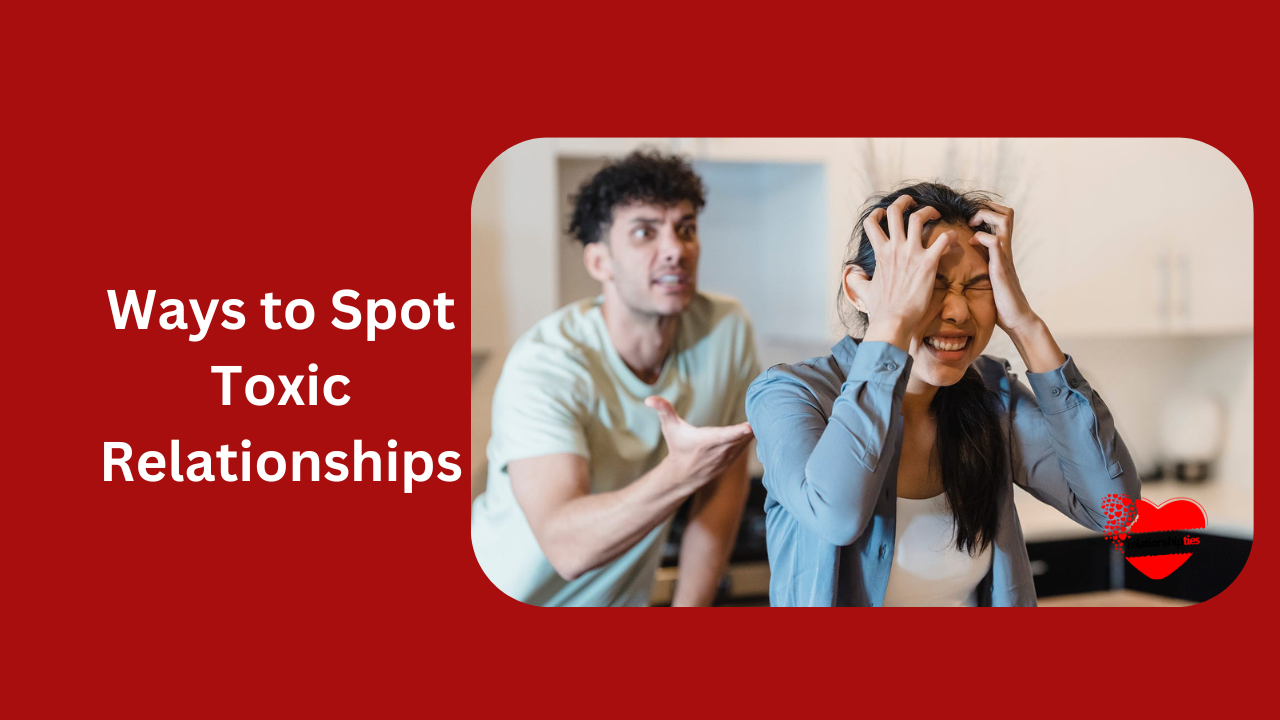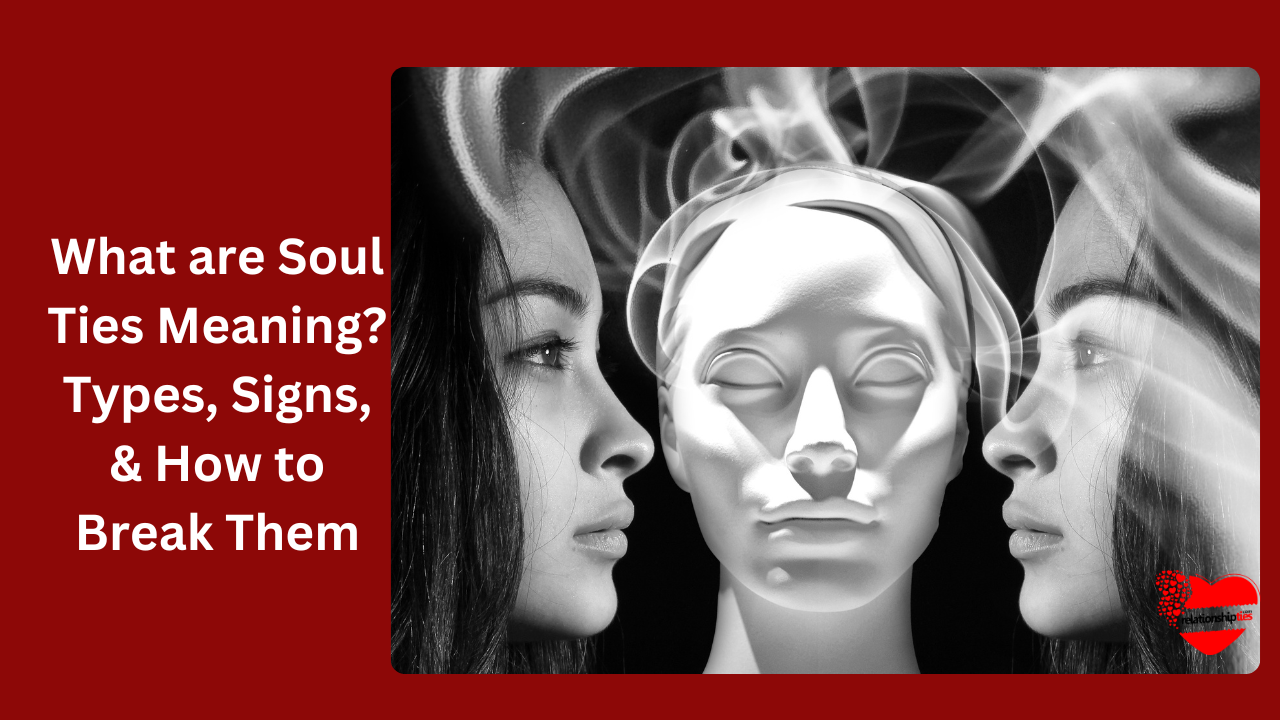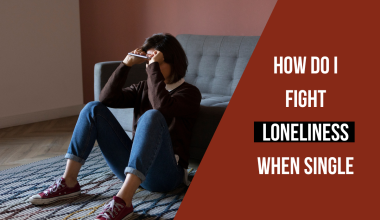Spotting toxic relationships is important in navigating the complex web of human connections.
These relationships can seep into various aspects of our lives, from romantic partnerships to friendships and family dynamics. Recognizing the signs of toxicity is the first step in protecting your emotional and mental well-being.
This article will delve into 15 crucial indicators that serve as red flags in identifying toxic relationships.
By shedding light on these warning signs, we aim to empower you with the knowledge needed to make informed decisions about the people you choose to keep in your life.
Armed with this article, you can prioritize self-care, set healthier boundaries, and work towards fostering connections that promote positivity and personal growth.
Understanding what constitutes a toxic dynamic is paramount in a world where relationships can profoundly impact our happiness and overall quality of life.
It’s not just about avoiding negativity; it’s about creating a space where you can thrive emotionally and mentally.
By the end of this article, you’ll be better equipped to navigate the complex terrain of human interactions, make choices that align with your well-being, and, ultimately, pave the way for healthier, more fulfilling relationships.
Table of contents
15 Ways to Spot Toxic Relationships
Recognizing that relationships are a fundamental part of our lives is essential. These are the 15 crucial signs of toxic relationships:
1. Absence of respect
You should never feel less worthy in a relationship. Toxic people violate your boundaries while claiming to do it out of love.
They tease you unfairly and accuse you of taking yourself too seriously. They treat you like a possession and feel entitled to your time and attention. This is a way of spotting a toxic relationship’s red flag.
The truth is that someone who genuinely cares about you won’t purposefully offend you.
Your boundaries are respected rather than crossed. If there is a lack of respect between the two people, the relationship may not be worth defending.
Read Also: How To Build A Dynamic Relationship: Meaning and Their Types
2. Isolation
A responsible companion won’t try to take over your entire life. He knows having a vibrant social life is just as crucial as having a romantic connection.
But negative people act in the other way. They criticize your relatives and friends for not being encouraging and pointing fingers at them. When you attempt to socialize with others, they might even cause a scene.
This toxic relationship trait aim to create a barrier between you and your group of people. They cause mental havoc and deceive you into thinking they are your only resources.
3. You feel the need to please them
In a healthy relationship, both individuals should feel valued and respected for who they are. However, if you find yourself constantly trying to please the other person at the expense of your own needs, desires, or well-being, it can indicate a toxic relationship.
This behavior may lead to emotional exhaustion, loss of self-identity, and an imbalance of power in the relationship. To cut off toxic people displaying this sign, consider setting boundaries, communicating your needs, and seeking support from friends or a therapist to help you regain your self-esteem and independence.
4. You keep expecting that they’ll change.
Many toxic relationship traits that characterize toxic relationships would be unacceptable in a stable, successful partnership.
According to Lewandowski, a relationship must have toxic behavior from one person and “a willingness to stay, perhaps predicated on the false hope of potential partner change” from the other spouse for it to be poisonous. Or, to put it another way, you stick around, hoping your individual will stop the undesirable conduct.
But here’s the thing: Your judgment is frequently impaired in toxic relationships, and you place your hope in a change that will never materialize.
5. Your loved ones and friends are worried.
Understanding this indication can be very difficult. “This person may not get along with your sister or friend, and they may start asking questions like, ‘Why is he talking to you like this?’ or ‘Why is he doing that?'” Greer claims.
However, because they’re speaking from a protective position, what they say may come across as negative or controlling, which is the opposite of how you want to feel, given that you’ve been coping with it from your toxic partner.
“Your instinct is to filter out what they’re saying and react with ‘Don’t tell me what to do,'” Greer claims. But she advises taking a breath and asking them a straightforward question: Why do you feel that way? Maybe what they say may help you see things differently.
Read Also: 5 Stages of Grieving a Breakup | Relationship
6. When you’re around them, you frequently feel worse.
If your relationship is healthy, you always want to be with your partner. No, not constantly, but frequently. It’s the exact opposite in a toxic relationship.
As soon as you see them, you feel depressed or uneasy, although you think you miss them and want to see them, according to Sussman. “And perhaps they’re doing something to give you cause for concern.
Maybe they’re using their phone when speaking to you and not giving you their entire attention. Or they insult the other person right away.
Whatever the case, you shouldn’t feel worse around your partner. It’s just wrong.
7. You Don’t Feel Cheerful Anymore.
Everyone knows it is impossible to always be happy in a relationship, but your spouse should make you happier overall.
They should inspire you and give you the confidence to accomplish everything you want. They should aid in your reconstruction and inspire confidence in your ability to make things as you want.
When you are not happy around your lover, it is a red flag that your relationship is poisonous.
8. Lack of Cooperation
One of the most important advantages of being in a relationship is probably having your partner’s support.
Since friends, family, and coworkers cannot be as intimate with you as your spouse can, you cannot get that type of support anywhere else.
Your partner will support you emotionally and physically, listen to your issues, and lift you when you are sad.
This is a crucial component of any successful relationship. If your partner is no longer understanding and you do not feel like you can confide in them or ask for their assistance, you are missing out on a lot. If this continues for a while and nothing changes, it could lead you to believe you are unworthy.
Read Also: Can Unrequited Love Turn to Requited Love in a Relationship?
9. Adoption of previously unaccepted norms
Compromise and change are inevitable in all relationships. However, when it goes too far, and people sacrifice their fundamental principles, they become people they detest or even recognize when they look in the mirror.
This alteration may have been a response to or defense against an abusive relationship that they fail to or refuse to recognize as such.
They are preventing themselves from speaking out and leaving an abusive partner because they deny they have changed into that person.
Abuse does not occur if people are not the ones who are living in violent relationships. If it occurs, these people will have to face a painful reality about who they are and what they have chosen, which can be just as painful as the abuse itself.
10. Stonewalling
If this term is unfamiliar, Kays defines stonewalling as “an overarching refusal to communicate or participate.”
Someone who requires some distance before continuing a conversation is not considered stonewalling.
Everyone deserves a moment to cool off after a passionate exchange so they can return to the conversation with greater composure, but stonewalling occurs when someone refuses to participate at all.
According to Kays, stonewalling is destructive, painful, and comparable to receiving silent treatment.
Have you ever been vulnerable in sharing your thoughts and feelings only to have the other person disappear, shut down, or zone out?
Read Also: 10 Best Long Distance Relationship Games Apps For Couples | 2023
11. Self-harming
Threats of self-harm are harmful, much like threats of separation or divorce. If the main intention behind the threat is to weaponize mental health, win sympathy, or earn favor, then it could be exceedingly destructive for both sides.
According to Kays, “Self-harming behaviors are dangerous for the person engaging in the behavior as well as the relationship.” “Each partner is in charge of ensuring their bodily safety. This is typically a shared effort that seems frightening, unsettling, and manipulative when someone is actively self-harming.
12. Screen hiding
In today’s modern environment, suspicious conduct involving devices, emails, and passwords may indicate fraud.
This may manifest as your partner refusing to share their passwords with you, not trusting you with their electronics, or denying you access to their phone or computer.
Naturally, it works both ways. It may also be a symptom of toxicity if you feel the need to hide your phone from your spouse out of concern for what they could see, how they might respond, etc.
According to Kays, “Smartphones give us access to an endless amount of information and people.” “There is probably a reason if you feel the need to hide your screen from your partner or if they do the same to you.”
Read Also: Why Do People Love Hate Relationship
13. Friend total
Take a look at both your and your partner’s friend lists. Making decisions about someone based on their many friends is not ideal, but it can be a useful indicator.
“Friend count is complex because it might have several different meanings. Some people naturally have more or less friends than others, but it can be a little worrying when someone doesn’t have any healthy friends or, on the other hand, has a seemingly unlimited number of close friends.
That doesn’t mean you should end your relationship with them if they have too many (or too few) pals, but it might be something to watch out for.
14. A sense of guilt
Another toxic action that can be categorized as a form of gaslighting is putting you on a guilt trip.
Kays defines “guilt-tripping” as “being put in lose-lose situations when attempting to hold to your own needs.”
The goal of guilt-tripping is typically to make the other person feel guilty, avoiding the need to accept responsibility. The guilt tripper changes the story by blaming you, which makes you feel guilty for your role in the argument or misunderstanding.
15. Restrictions
In a good relationship, you can be yourself without limitations or filters. However, in a toxic relationship, you cannot be who you truly are because you constantly try to please your spouse. Additionally, you frequently filter information to prevent upsetting them.
Read Also: Intellectual Relationships | Signs you are not Intellectually Compatible
Conclusion
“Recognizing and addressing toxic relationships is crucial to safeguarding your emotional and mental well-being. Throughout this article, we’ve unveiled 15 essential signs that can serve as powerful tools in your quest for healthier connections. Remember that identifying toxicity is not about casting judgment or blame but rather self-preservation and growth.
Armed with this knowledge, you are now better equipped to navigate the intricate landscape of human relationships. It’s within your power to set boundaries, prioritize self-care, and make informed choices about the people you invite into your life.
Doing so can cultivate an environment where positivity, respect, and personal growth flourish, ultimately leading you toward the fulfilling and harmonious relationships you deserve. Embrace this newfound awareness and use it to shape a brighter, more rewarding future in your interactions with others.






